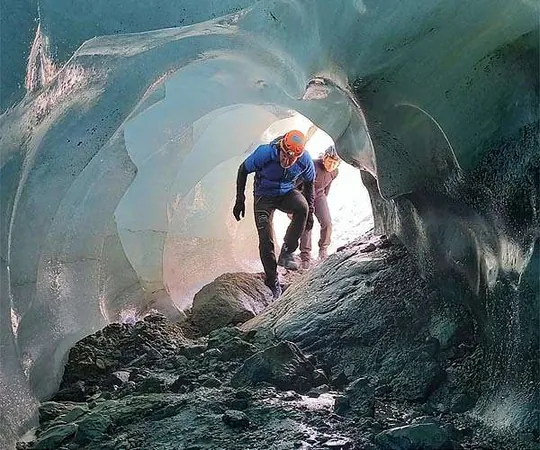
Discoveries Deep Below: How a Caving Expedition Revolutionizes Cognitive Research
2024-12-04
Author: William
Discoveries Deep Below: How a Caving Expedition Revolutionizes Cognitive Research
In a groundbreaking study that pushes the boundaries of cognitive neuroscience, researchers from Concordia University have embarked on an ambitious caving expedition to explore human responses under extreme conditions. Contrary to lab-based research, which can often feel remote from real-world experiences, this field study presents a vital new perspective on how environmental stressors affect thought processes and behavior.
Published in the Journal of Environmental Psychology, the study sheds light on the findings and challenges faced by the team as they journeyed into the Sierra Negra Mountain region, located 300 kilometers southeast of Mexico City. Under the guidance of Emily Coffey, an associate professor of psychology, and with the collaboration of Speleo Quebec, the researchers immersed themselves in a rigorous three-week mission to document human behavior in one of nature’s most daunting settings.
The expedition included a diverse group of participants, ages 27 to 65, who had varying levels of caving experience. They faced grueling physical conditions, including extreme isolation, cramped quarters, and lack of modern conveniences, which starkly contrasted the regimented cleanliness of a laboratory.
Lead author Hugo Jourde, a PhD student in the Coffey Lab, recognized the value of this dual approach. "Lab work is highly controlled and therefore reproducible, but it lacks the authenticity of real-world scenarios," he explained. "Field missions, while unpredictable, offer an opportunity for genuine insights into human cognition."
During the second week of the mission in March 2023, the team implemented an array of innovative data collection methods. These included questionnaires, cognitive tasks, and physiological readings—all designed to assess fatigue, emotional regulation, and cognitive performance. Body-mounted cameras and sleep measurements allowed researchers to capture rich, real-time data in an environment where traditional methods would have failed.
However, the journey was not without its hurdles; logistical issues, physical exhaustion, and the challenges of operating in such an extreme environment meant that constant adaptation was necessary. Despite these setbacks, Jourde noted the success of the expedition: "While we were aware that most of our data would lack statistical power, what we gathered is undoubtedly usable and valuable."
The implications of this study extend far beyond caving. As organizations like NASA and the European Space Agency eye potential applications, the research paves the way for critical investigations into human performance in similarly harsh environments. This knowledge could inform a variety of fields, from preparing astronauts for space missions to enhancing workplace safety in physically demanding careers.
"Caving teaches us essential lessons about resilience and cognition in high-stress jobs, not just for those in extreme scenarios," Jourde remarked. "The insights from this research can benefit anyone engaged in challenging work."
So, the next time you think of cognitive neuroscience, remember that some of the most exciting discoveries begin far below the surface, in the depths of a cave, where every crevice could unveil the mysteries of the mind.









 Brasil (PT)
Brasil (PT)
 Canada (EN)
Canada (EN)
 Chile (ES)
Chile (ES)
 España (ES)
España (ES)
 France (FR)
France (FR)
 Hong Kong (EN)
Hong Kong (EN)
 Italia (IT)
Italia (IT)
 日本 (JA)
日本 (JA)
 Magyarország (HU)
Magyarország (HU)
 Norge (NO)
Norge (NO)
 Polska (PL)
Polska (PL)
 Schweiz (DE)
Schweiz (DE)
 Singapore (EN)
Singapore (EN)
 Sverige (SV)
Sverige (SV)
 Suomi (FI)
Suomi (FI)
 Türkiye (TR)
Türkiye (TR)